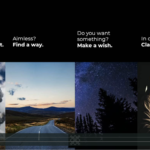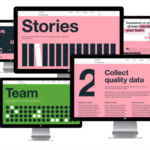
ANDRE TORALES
[s2If current_user_can(access_s2member_level1)]
[/s2If]
[s2If !is_user_logged_in()]
Join EPIC to access video:
→ Learn about Membership
→ Browse Video Library
[/s2If]
[s2If current_user_is(subscriber)]
Join EPIC to access video:
→ Learn about Membership
→ Browse Video Library
[/s2If]
PechaKucha Presentation
Automation and Artificial Intelligence are defying the status quo making us rethink our jobs, our relations and, philosophically, our lives purpose. This emerging trend will affect every aspect of our lives: economically, cultural and socially speaking. If you think that Ethnographic Research is a safe harbor from all these changes, because it is so human and qualitative, you may be wrong.
In this Pecha-Kucha, I want to share a story that I, as a researcher, in face of users’ pain points bigger than which button to click on an App, thought about products and services to help people using design thinking. During this side-quest, I’ve faced a lot of challenges and found the answer in developing...



